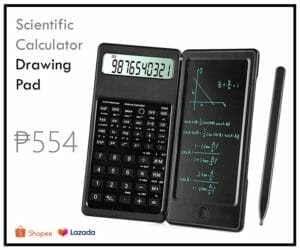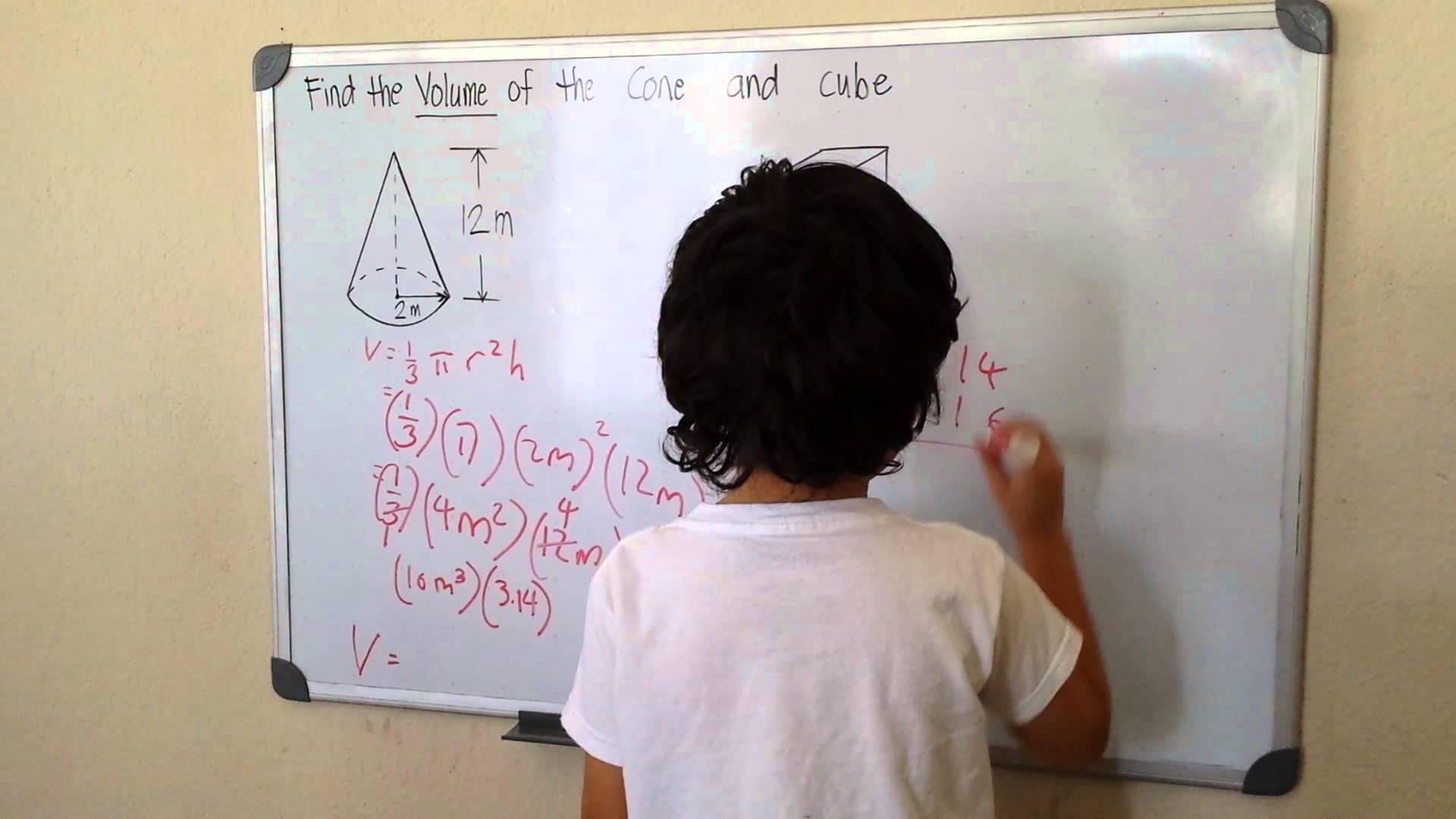What should Filipin parents do when they find out that their child is a Math Prodigy?
Math prodigy Miko Secillano is probably the smartest kid you’ll ever meet at his age.
Well, if you know any other smart 4-year-old that can calculate the square root of numbers 1 to 30 in 3 minutes, you can tell us otherwise.
The young Cebuano is a child prodigy when it comes to his very intelligent brain.
If you think that’s not impressive, he also memorized all the 118 numbers and symbols of the Periodic Table of Elements.
A typical four-year-old would just be playing in the mud or eating glue at that age.
One of Miko’s most popular videos, calculating the area of a cone and a cube. Math Prodigy. Source: Philip John Secillano via YouTube
Miko had his intelligence measured this November and it wasn’t that surprising that he got a score that equated to him being “gifted”.
That said, his dad Philip is sending over his results to MENSA, hoping to get that membership.
For those of you that are unfamiliar with MENSA, it’s an international organization of whizzes and geniuses that have IQ scores above the 98th percentile.
That means members of this group are smarter than 98% of the people in the world.

Math Prodigy Miko

The wonder child was first popularized by his video of solving the volume of a cube in the cutest way.
He was saying everything he was writing down, as if teaching a class.
This viral video was so famous that it reached 29 thousand views in a small span of 3 weeks.
Numerous people messaged Miko’s parents commenting that the child is a pure genius.
A math professor in Brazil even quoted that the child is “a fantastic promise” and that he’s nothing short of a prodigy.
Engineers, this is how you solve for total resistance on a parallel circuit. Math Prodigy. Source: Philip John Secillano via YouTube
Miko’s parents are both Filipinos, but have been residing in the US for almost 8 years now.
His dad, Philip, is originally from Albay, Bicol, while his mother, Imee, is originally from Cebu.
They’re now residing in Florida but are still very close to their Filipino ties, frequently visiting the Philippines every two years.
Philip always records his son’s math endeavors on camera and posts them on Facebook for everyone to see.
Miko’s whiteboard and math skills, which his father personally taught him, are often the subject of all his videos.

While Miko’s videos are fairly new, his gift is not.
His parents have reported that his learning was very advanced and was apparent since he was 2 years of age.
Philip said that Miko was already able to count from 1 to 100 at the age of 2, but still could not answer basic addition at that time.
Since then, Miko taught himself how to read, which was easy since the child was a huge fan of picture books.
Math prodigy and genius level geography. Source: Philip John Secillano via YouTube
At age 3, Miko was into geography.
Continents, countries, and cities were all basic for the young prodigy.
Miko even had a video posted of his mom naming a country and him replying with the capital city.
This is pretty surprising as the kid was able to name a total of 164 cities.
If that wasn’t enough to impress you, did we mention that Miko only learned how to add at the age of 4?
Yes, this child genius has just started math and he’s already doing geometry and algebra.

The secret behind this is that his dad gives him a 5-minute tutoring lesson every morning to learn a new mathematics concept.
Any information retained after that is purely based on his ability to absorb information.
Aside from that, like any other 4 year old, Miko loves to play and spends a lot of time with his friends.
He practices karate on the side and also goes swimming with his play buddies.
If asked whether his friends or teachers know about his math skills, Miko would just reply “No. We only learn the alphabet. We don’t have Math in Pre-School!”

What Filipino Parents Need to Know About Their Child’s Prodigy Abilities
Filipino parents of children with prodigious abilities often find themselves in the not-so-surprising position of having to educate their community about their child’s unique skills.
In order to ensure that everyone understands what your child is capable of, some basics about prodigious abilities and how they manifest should be shared with friends, family, and strangers alike.

What is a child prodigy?
A child prodigy is a young person with extraordinary talent or ability.
Many prodigies in the Philippines are musicians, artists, or mathematicians, but some are also scientists or businessmen.
Prodigies often show their talents at a very young age; some as early as two or three years old.
Most prodigies have very supportive parents who encourage their children to develop their talents.
Some prodigies also receive special instruction from teachers or coaches who help them to maximize their abilities.
Prodigies can sometimes be difficult to handle because of their high level of energy and intelligence.
However, with the right guidance and support, they can go on to achieve great things.

How do you know if your child is a math prodigy?
There is no one answer to this question as every child is different.
However, there are some things to look for if you think your child may have a prodigy-like ability in a certain area.
If your child excels in academics, they may be a prodigy.
Many math prodigies start reading and doing math at an early age and often score high on IQ tests.
If your Filipino child loves music, they may be a prodigy too.
Many prodigies begin playing music at an early age and are able to pick up new instruments quickly.
Finally, if your child has a talent for the arts, they may also be a prodigy.
Prodigies in the arts often have a natural ability to paint, draw, or write creatively.

What should you do if you think your child is a math prodigy?
If you think your child is a math prodigy, the best thing to do is to start researching.
There are many resources available to help you understand and support your child’s unique abilities.
Pinoy parents can find books, articles, and websites that will provide information on how to nurture their child’s talent and help them reach their potential.
It is also important to talk to other Filipino parents of prodigies and learn from their experiences.
Joining a support group can be helpful in finding out what schools or programs are the best fit for your child, and it can also provide emotional support.
It is important to remember that every Filipino child is unique, so there is no one “right” way to raise a prodigy.
The most important thing is that you listen to your child and give them what they need to thrive.

What are the benefits of having a math prodigy child?
When most people think of prodigies, they think of child geniuses like Albert Einstein or Wolfgang Amadeus Mozart.
But what many people don’t know is that prodigy children come in all shapes and sizes.
In fact, a prodigy is simply a child who has an extraordinary ability in one or more areas.
So why are prodigy children so special?

For one thing, they tend to have higher than average IQs and are often able to learn new things much faster than other children.
This makes them natural learners and problem solvers.
Pinoy math prodigy children also have a great sense of curiosity and are always exploring new things.
But the benefits of being a prodigy go beyond just academics.
Prodigies often have amazing talents in the arts as well.
They may be able to play music or paint masterpieces with little practice.

How can you help your math prodigy child achieve success?
There is no one answer to the question of how best to help a prodigy child achieve success.
However, there are some general guidelines that may be helpful.
Filipino parents and educators should provide opportunities for prodigy children to develop their skills and interests, and should encourage them to pursue their passions.
It is also important to create a supportive environment that allows prodigies to thrive intellectually and emotionally.
Finally, it is essential to provide access to resources and opportunities that can help prodigy children reach their potential.
With hard work and dedication, Filipino prodigy children can achieve great things.

Conclusion: What to expect from your math prodigy child.
When your child is a prodigy, what can you expect?
You can expect them to be a high achiever. They will likely excel in academics and other activities.
As a Filipino parent, it is important that you provide the support they need to continue achieving.
This may include helping them with homework, providing encouragement, and setting a good example.
Prodigy children in the Philippines may also struggle with social interactions.
They often have difficulty relating to their peers and may feel like they don’t fit in.
It is important that you help them build relationships and find friends who share their interests.
Finally, prodigy children are often perfectionists. This can be both a good and bad thing.
On one hand, it means they are likely to strive for excellence in everything they do.
On the other hand, it can lead to stress and anxiety if they don’t meet their own high standards.

More Filipino Genius Stories
Study Hard, Pray Harder: The Story of How This Filipino Aeronautical Engineer Topped His Board Exam
This Filipina is One of The Most Powerful Engineers in the World












